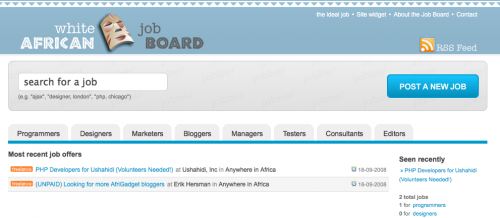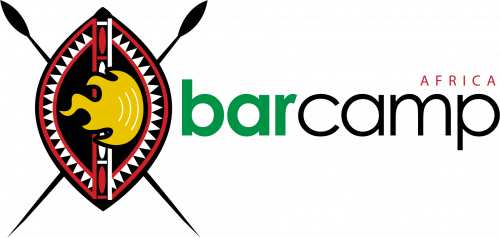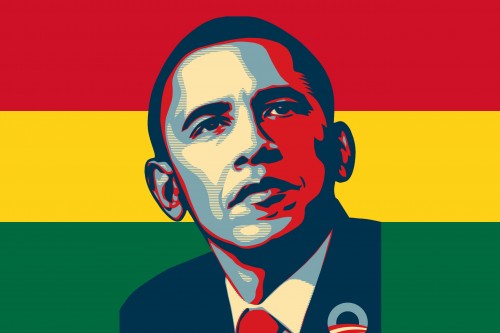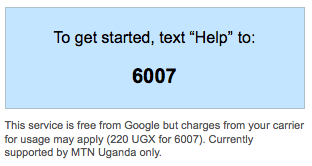WhiteAfrican
Where Africa and Technology Collide!
Author: HASH (page 27 of 106)
There’s an excellent post up on MobileActive about the recent mLearning Summit held in Zambia, titled “Go Mobile: Using Mobile Learning to Teach 21st Century Skills”. Steve Vosloo is a South African who has spent a lot of time researching how mobile phones can be used in education, here’s a video put together by him from this event.
“Steve Vosloo noted that m-learning summits have two main goals: To introduce and popularize the mobile phone as a tool for engaging students, and secondly, to identify local content needs. Examples of this may include applications that support grade submissions and attendance in remote locations or projects that explore how texting can be used in literacy.”
Psitek is a company that deeply understands the African market, I’m convinced that this is due to them having all of their work done on the continent. The last time I wrote about them was after I came across the nearly indestructible Streetwise mobile-accessible computer for children.
As Hannes notes:
“They are the inventors of that trusted voice access device that anyone that ever travelled to Africa would know about: the Adondo. Designed for Africa with anti-insect electronics, high temperature and humidity tolerance, their devices still ship with car-battery ready clamps.”
The Kazang service and terminal
This time it’s about Kazang, a prepaid terminal for merchants selling mobile phone services, such as prepaid airtime, paying of electricity bills or insurance. The service is a year and a half old now, and boasts nearly 5,000 vendors ranging from South Africa to Kenya to Zambia.
The newest device, the Timpa, comes with all of the necessary requirements for the challenges that a merchant running a business in a rural (or urban) setting in Africa would need. It has a built-in printer and rechargeable battery which makes it fully mobile, uses GPRS technology to communicate with the Content Ready (back-end) server (just plug in a data SIM card), and a large LCD with backlighting. They have also built in fail-safes for when the GPRS connection drops, or the electricity goes out, so that the merchant doesn’t get charged for a voucher that they didn’t receive.
Psitek claims that clearing $1000/month is a reasonable to expect by vendors, which would bring home about $80/month of profit (8% margin). This alone makes it a fairly good proposition for a lot of merchants, meaning they can add a Kazang terminal to their shop as an added draw for more customers and it acts as to supplement their other revenue streams.
Not written about much relative to their impact, Psitek is one of those tech firms offering devices that run behind the scenes of many businesses in the southern part of Africa.
This week I launched a little side project: JOBS.whiteafrican.com I think of it as a place to connect freelancers and small teams with gigs and project work in the African tech sphere.
I’ve been getting a number of emails lately asking me connect people in the US, Europe or large organizations in Africa with local (as in “in-Africa”) talent. They’re usually interested in finding a knowledgeable designer, a good blogger or editor, and I’ve had quite a few people ask me to put them in touch with programmers.
The White African Job Board
At this time, it’s a simple and free place to post jobs for African technology professionals. So, what I’m really looking forward to seeing are opportunities listed specifically for people in Africa. That last bit is important, it’s for African devs, designers and bloggers.
A lot of these might be for short-term gigs and volunteer opportunities, but who knows… It’s a little bit of an experiment, so no promises on my part. If it proves popular and useful I’ll keep it around. Oh, I have the final say on what jobs go live too, so be forewarned. Think of me as the curator and friendly job board dictator… 🙂
Make sure you grab the news feed, so you don’t have to keep coming back to see what’s new. Take a look at the tips page – think about how you’ll deal with project scope, as well as how to pay, or be paid.
Real Job Boards Around Africa
Unlike my little project solely focused on technologists, there are some real job boards around the continent that are worth keeping in mind. Here are a couple of them (leave links others that I missed in the comments area):
Kazinow
Find a Job in Africa
Job Space – South Africa
Best Jobs – South Africa
Zebra Jobs
Sama Source – Outsourcing to Africa
Further Thoughts on Outsourcing Tech Work to Africa
It’s an encouraging sign that there are a lot of people interested in finding local African talent. What I’ve found in my travels, and in talking to technologists around the continent, is that though there are more devs and designers each year, the number of top quality ones available for work are few.
One cautionary piece of advice though… and it pains me to say this. A few of the African developers that I have come across are not time-conscious and they can come across like their client/project is not as important to them as you would find in their counterparts in the West. Of course, this means if you are timely and fulfill your responsibilities you will find clients lined up 10 deep to get to you – you’re a rare commodity.
African developers are quickly going to learn that they’re on the global stage now, and there’s nothing stopping their clients from switching to someone more reliable, even if it’s a country or continent away.
The good news is that of the many devs I’ve met, many are as good as any you’ll find anywhere else in the world. A few of them are on par with the best I’ve come across anywhere.
A related initiative
There is also an initiative called Coded in Country focused on getting programming work done within the countries that the applications and products are meant for. Keep an eye on it, and pitch in as/where you can.
A couple years ago, the first Barcamp unconferences started to show up around Africa. These loosely organized events end up having a large impact on the local grassroots tech scene and blogosphere. The open and unstructured format ends up fitting the African style of community and discussion around ideas and projects that just isn’t found in normal conferences.
The first “Barcamp Africa“, however, was a little different than the normal local events. It was put together by individuals in the US (at the Google office in California), some of whom were diaspora, and others who had a deep interest in the continent.
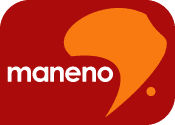 That was a year ago, and now the good people behind Maneno (a blogging platform made for Africa) have taken over the hosting of content around Barcamp’s that take place in Africa or that have an African focus. Beyond that, they have created a simple way for those putting on new Barcamp’s to setup an online home for it.
That was a year ago, and now the good people behind Maneno (a blogging platform made for Africa) have taken over the hosting of content around Barcamp’s that take place in Africa or that have an African focus. Beyond that, they have created a simple way for those putting on new Barcamp’s to setup an online home for it.
“The primary objective of the new BarCamp Africa hub is to encourage a continuous stream of participant driven content from African barcamps before, during, as well as after the events take place. Barcamp Africa allows each barcamp to have a simple, hosted, lightweight site specific to their event with a custom url. As an example, check out the recent barcamp’s in http://barcampafrica.com/swaziland, http://barcampafrica.com/madagascar, or the upcoming http://barcampafrica.com/abidjan. Stories published on this site as well as others on the platform aggregate to the main BarcampAfrica.com page (as well as the Maneno home page) and are exposed to the larger audience of barcampers all over Africa.”
As someone who has helped put on a couple Barcamps, I’ve found that there are really two components. First is the simple organization, which self-organizes best around a wiki – specifically the Barcamp.org wiki. Second, is the communication to everyone else around the community of the upcoming event, done best with a dedicated blog/website.
This second area, communication, is where the greatest value for organizers will be found with the new Maneno hosting for Barcamp Africa. It will be with the those who simply want to setup a site that will get them good, dedicated exposure and allow multiple people to write on it, with updates on location, place, attendees and initiatives arising out of it.
For those who haven’t tried it, Maneno has an incredibly fast loading blogging platform, specifially designed for low bandwidth areas in Africa. On top of that, it is available in local African languages that have traditionally had little web presence. Articles can be easily translated between multiple languages and sit atop one another to overcome the linguistic divide facilitating open communication between the different communities.
If you’re interested in upcoming Barcamps around Africa, check out the Barcamp Africa calendar.
eNowNow is a service in Nigeria where anyone with a mobile phone can sign up to receive updates on traffic conditions in different areas around Lagos.
How it Works
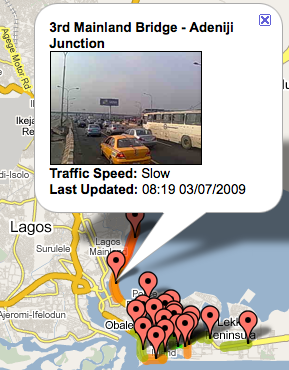 Armed with a mobile phone, a team of 4-6 motorcyclists ride to different, pre-designate parts of the city. They take pictures of the current traffic conditions and MMS that image to the central office. That image is then geolocated and given a score of “slow”, “moving” or “free”. Anyone who has signed up for SMS or email alerts is then sent a message with the traffic update.
Armed with a mobile phone, a team of 4-6 motorcyclists ride to different, pre-designate parts of the city. They take pictures of the current traffic conditions and MMS that image to the central office. That image is then geolocated and given a score of “slow”, “moving” or “free”. Anyone who has signed up for SMS or email alerts is then sent a message with the traffic update.
Challenges
I asked Simon, one of the people putting the service into action, what some of their challenges are. His reply:
“Collecting information in this way, although not that technical (lots of people have said why not use stationary webcams it would be technically superior), is turning out to be more difficult than we expected. Finding people who can grasp the concept behind the service, ride well through the crazy Lagos traffic, and are reliable has been tricky, added to that we’ve had lots of issues around harassment and even arrests from the police (many police officers apparently believe you need special police permission to take photos of traffic) and just recently the weather has been in our way as the rainy season has just started in Lagos making operations more difficult and a few phones have been dropped in puddles! “
The business side
eNowNow doesn’t see much value in charging premium SMS rates for their services. They believe margins are low, and they don’t think the uptake would be high enough amongst their target market to make it work. Instead, they have plans to subsidize the service with revenues from licensing traffic information to Sat Nav providers and logistics companies.
“In Nigeria the networks will take anything between 40 and 75% of a premium SMS’s cost to a subscriber for themselves (pull or push) leaving you a tiny margin for profitability and driving the industry standard (and therefore what the networks will allow you) per SMS cost higher. Most people think that traffic only affects those in cars and they can therefore afford to pay for a service, but most of Lagos’ population aren’t in that bracket and those on public transport still have choices about which buses they take, which routes and what time they leave work.”
Thoughts and ideas
Maybe it’s because I’m a motorcycle fan, or maybe it’s because I have a deeply ingrained detestation for being stuck in traffic in Africa’s mega cities, but this application hits the sweet spot for me. I’ve been wanting just this type of thing in Nairobi for a long time…
One additional idea, to make this even more dynamic, and spread it over the whole city is to create a way for ordinary drivers to text into the system when they come across a new or growing traffic problem. I imagine that Lagos has areas with traffic that is not on the pre-designated points that eNowNow operates in currently.
This is a classic locally grown tech initiative, and I hope that they can pull it off. If so, it can definitely be replicated in other major metro markets across the continent.
A couple weeks ago I had a discussion with President Obama’s New Media team, where we talked about what they might do to reach out to ordinary Ghanaians on his trip next week – which will culminate in his speech in Accra on July 11th. There is a lot of excitement in Africa around Obama, and this trip is going to set the continent humming.
WhiteHouse.gov/Ghana isn’t live yet, but on July 11th, it will become available. They are going to stream the talk at whitehouse.gov/live.
It’s a fairly interesting initiative to undertake, with a slew of problems, as you try to engage with as many individuals in an open travel campaign as possible. At the same time, you know that any channel you open up will get absolutely flooded with incoming comments, questions and spam of every sort. In the end, the team decided that Radio, SMS, then Facebook would be the primary new media access points – and in that order.
Radio, SMS and Facebook
Radio is still the number one communications medium across Africa, and Ghana has a particularly vibrant and active one with a lot of local and national community interaction.
As everyone knows, mobile phone penetration has grown at an explosive rate in Africa, this means that SMS is a fairly democratic means for getting feedback from people of every demographic across the nation. (Funnily enough, not available to US-based residents – more below on that)
Lastly, there are no major homegrown web-based social networks in Ghana, and like many other countries across Africa Facebook has a decent amount of penetration. In Ghana, it’s at 100,000+, so it makes the most sense for the new media team to engage and interact without splitting their energy over too many services. Having Twitter on as a backup is natural, as there will be a great deal of chatter there as well.
The details (from the White House)
SMS. We’re launching an SMS platform to allow citizens to submit questions, comments and words of welcome (in English and in French) . Using a local SMS short code in Ghana (1731) , Nigeria (32969) , South Africa (31958) and Kenya (5683), as well as a long code across the rest of the world*, Africans and citizens worldwide will be encouraged to text their messages to the President. SMS participants will also be able to subscribe to speech highlights in English and French. Long numbers for mobile registration pan-Africa: 61418601934 and 45609910343.
This SMS platform is not available to US participants due to the Smith Mundt Act (The act also prohibits domestic distribution of information intended for foreign audiences).
Radio. A live audio stream of the President’s speech will be pushed to national and local radio stations during the speech. After the speech, a taped audio recording of the President’s answers to the SMS messages received will be made available to radio stations and websites. The President hopes to answer a variety of questions and comments by topic and region. The audio recording will also be made available for download on White House website and iTunes.
Video. The speech will be livestreamed at www.whitehouse.gov/live. The embed code for this video is available so you may also host the livestream on any Website.
Online chat. We will host a live web chat around the speech on Facebook (it will be at http://apps.facebook.com/whitehouselive). The White House will also create a Facebook “event†around the speech wherein participants from around the world can engage with one another. A Twitter hashtag (i.e. #obamaghana) will also be created and promoted to consolidate input and reaction around the event.
Obama talks about his upcoming trip
Part 1
Part 2
If you provide services to poor people, should you make a profit?
That’s essentially the question raised by Katrin Verclas on MobileActive, and it’s an excellent one. Specifically, Katrin calls out the new Google Trader service offered by Google in Uganda, in conjunction with the release yesterday of their SMS products with Grameen and MTN Uganda, one of the local mobile phone operators. Basically, they charge 220 Ugandan Shillings per use, instead of the median 110 UGS charge across most networks. This is called a premium SMS rate.
Premium SMS rates are charged so that third-party service providers can make money off of services that they provide over the mobile phone network. The operator makes their (ridiculously high) profit as normal, and the overage is for the third-party. You’ll find a lot of dating, event and sports services offered in this way all over the world, not least across Africa.
Back to the question
The question posed is if people who are claiming to help the poor should charge, and if so, should they make a profit?
I think we’ve seen from the Grameen model in Bangladesh (ex: Grameen Bank and Grameen Phone’s Village Phone program) that you can (and possibly should). By doing so you help both parties; first, by providing a service that consumers value and are willing to pay for, and second by making the business of running an operation self-sustaining. Many good business, or project, ideas die due to lack of sustainable cash flow.
For instance, if a 220 shilling SMS can save you the 1500 shilling visit to the doctor or veterinarian, or give you a 10% higher return for your crops, is it worth it?
Is there a problem in the question?
There ends up being a paternalist nuance to that original question. After all, is it up to us to decide what services to offer the poor and at what price? Aren’t poor people able to make the value-based decision on whether a trip to the doctor is more useful to them than a call or an SMS to one? If services are being offered, the person making the decision to call, SMS or go physically to solve their problem, or not, is ultimately the arbiter of whether or not a service has merit and should be offered. It’s a classic market-led approach – if the price is too high for the service, equilibrium will not be reached and one will give, usually price.
This is particularly true when talking about for-profit companies offering services – like Google is with Google Trader. They don’t operate under the same development/grant funded subsidization that a lot of others do in Africa. Even if their goal was not to make a profit on this service, they still need to cover internal costs, as does every organization that isn’t provided with free money.
Final thoughts
This space in Africa, of offering services to the poor (in lieu of the governments actually doing their jobs), has been primarily “owned” by large development and aid organizations. This has created a false floor for the economy, as projects and initiatives are propped up by outside money and services rarely have to survive on their own. This is changing, as low cost and high value options come into the market, be they mobile phone operators providing new communication opportunities, or cheap chinese batteries and LED lights for local energy/lighting needs.
I’m sensing a flux in the space, like two bull buffaloes before they fight, the heavyweights in the aid industry and in business are circling each other before they knock heads. The marketing is over who is helping the poor and marginalized in Africa best. In the end the market will decide, and regardless of the messages spouted by both sides, the “poor African” will choose the winner.
If there’s a problem with collusion and price fixing in an industry (like there sometimes seems to be with SMS services in a country), that’s something beyond the scope of individuals and needs to be tackled separately by regulation. However, that’s not the case here, we have expensive SMS services in East Africa, but the new entrants into the space always offer low rates, and the costs of switching providers is relatively low.
No, this is market-based competitive services and both non-profits and for-profits have the right to offer them at whatever price they like. Equally, individuals have the right to use it or not, be they premium SMS rates or not.
I’d like to hear some other African’s thoughts on this.
Do you want big multinationals like Google and MTN coming in and providing their services to you? Should we be asking questions for the poor, or is that condescending in itself? What is the sticking point here, and is there a side that I’m missing?
**UPDATE**
Thanks to Katrin’s email to Rachel Payne, Google’s lead in Uganda, we have the following response from her on this topic, and it does clarify quite a few unknowns:
Hi Katrin.
Yes, I saw your blog post where you speak in detail about the pricing. However, what is written is not quite accurate. You see, Google, Grameen and MTN launched three types of mobile services yesterday: Google SMS Tips (targeting low-income, rural users primarily), Google SMS Search (urban, mainstream) and Google Trader (all users).
The second service is somewhat similar to other “premium SMS” content services currently available (except that it is built on Google search technology) and therefore, is the same price as other content services. To accommodate the first group, we have priced Google SMS Tips at half the price of a content service; this is available for the cost of a person-to-person SMS, which many rural individuals are willing and able to afford currently.
The third service drives income and livelihood benefits, so we decided to begin charging at the normal content service rate and monitor whether this excludes rural communities or not (we did extensive testing during the pilot, which included pricing discussions and most of the users found that Google Trader provided far greater, direct value than the 110 shilling price difference). For all services, we are offering them for free for the first few months, just to ensure that all users have an equal opportunity to try them out, risk-free and allow them to access critical content during this period so that they can assess whether or not they would like to continue to use the service.
I hope this helps provide a bit more information that clarifies the questions raised.
Grameen Foundation’s AppLab has released a new suite of mobile phone applications developed in Uganda, using Google SMS Search and in partnership with MTN Uganda as the mobile operator. The services include:
- Farmer’s Friend: a searchable database with both agricultural advice and targeted weather forecasts
- Health Tips: provides sexual and reproductive health information
- Clinic Finder: helps locate nearby health clinics and their services
- Google Trader: matches buyers and sellers of agricultural produce and commodities as well as other products. Local buyers and sellers, such as small-holder farmers, are able to broaden their trading networks and reduce their transaction costs. (known locally as “Akatale SMS”)
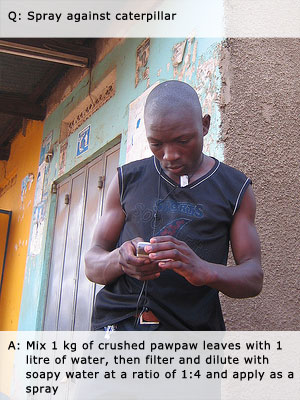 Back in 2004 Grameen started to replicate in Uganda what they had done in Bangladesh with their Village Phone Operators. That is, they would go 20km beyond the best phone signal and provide a loan to a lady in the village that would let her buy a phone and an antenna that would extend the range of the network. The lady would then resell services to local individuals who didn’t have access, or the ability to buy their own phone.
Back in 2004 Grameen started to replicate in Uganda what they had done in Bangladesh with their Village Phone Operators. That is, they would go 20km beyond the best phone signal and provide a loan to a lady in the village that would let her buy a phone and an antenna that would extend the range of the network. The lady would then resell services to local individuals who didn’t have access, or the ability to buy their own phone.
I’m actually quite impressed with this initiative, as it fits in perfectly with Grameen’s mission: providing opportunity through the most basic of mobile phones. All of these services work on SMS-only phones, so anyone with a single bar of coverage and a phone has access to a lot of knowledge in their hands.
Here is a promo video from Uganda, explaining why these services are needed:
High-powered Partnerships
Beyond the applications themselves, what I find most compelling is how the Grameen Foundation collected such a high-powered group of partners. The list reads like a who’s-who of innovative mobile services and development in Africa with Google, MTN Uganda, Technoserve, Kiwanja.net, and BRODSI to name a few. It’s a mixture of for-profit businesses, local NGOs and non-profit tech organizations.
I remember a conversation a couple months back with Sian Townsend (Google) and Ken Banks (FrontlineSMS) about how they did the field studies for this project. Sian shared with us some of her research on mobile user experience while in Uganda – it was extensive. Through a month of rapid prototyping and studying how users were actually using the new services, the team quickly learned what was important and how to better serve information up to the end-user.
Though I haven’t been able to personally test the services yet, with this group, I would expect the results to be better than average. For instance, Google doesn’t tend to get involved with ideas that don’t scale. I imagine that they see replicability with both SMS Search and Google Trader in many other countries as well. Rachel Payne, the country manager for Google in Uganda, has a blog post here, but not much more information on the long-term plans for Google Trader. I’d be interested in seeing how this compares to Esoko out of Ghana.
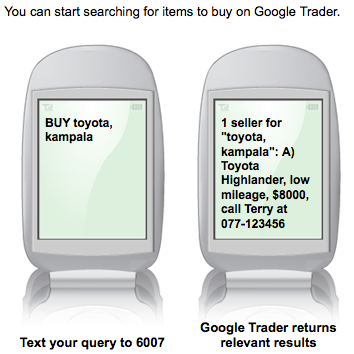
© 2025 WhiteAfrican
Theme by Anders Noren — Up ↑


